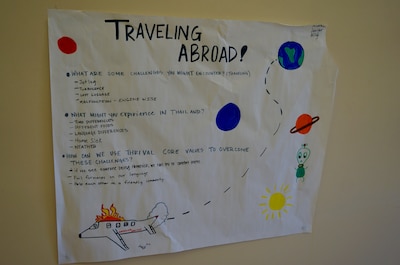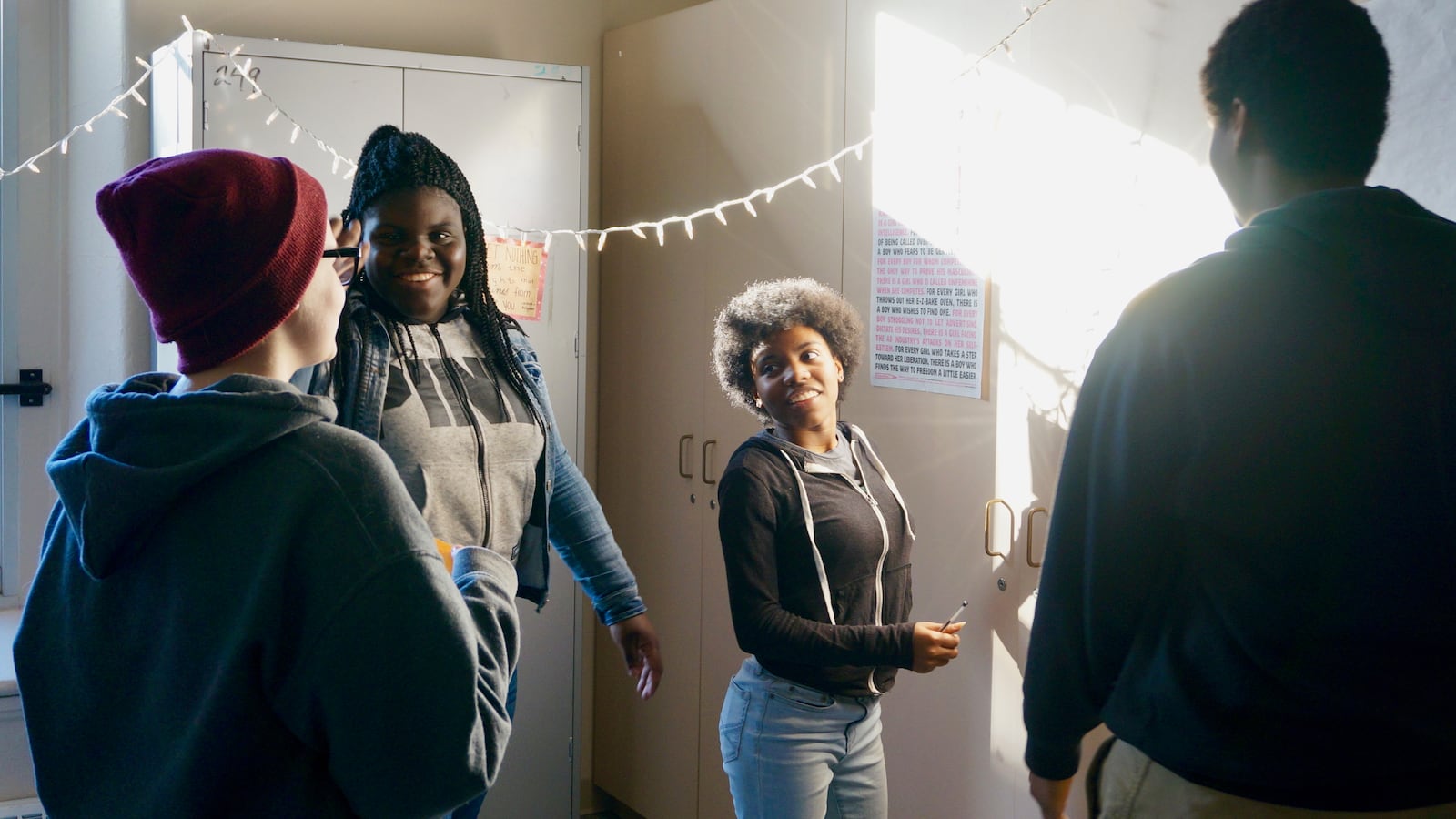Mikayli Davis was sitting in a math final last spring when she heard an announcement over the loudspeaker: Students would have a chance to go to Thailand for a semester for free.
“I was like, ‘oh my god! That’s a really good offer,’ ” recalled Davis, a junior at Arsenal Technical High School. “It just seemed interesting.”
Now, Davis is one of 20 Indianapolis Public Schools students in the pilot of Thrival Academy, a high school program meant to introduce them to the greater world outside their schools and communities. Housed in Arsenal, Thrival is paid for with funds from the district and the California nonprofit that is extending the program to Indianapolis. It provides students with a year of classes, taught by the teachers who will travel with them, and culminates in a three-month trip to Thailand in January.
Such an opportunity to spend a semester abroad is usually reserved for affluent students. But studies have shown that introductions to other cultures and the ability to leave homelands can have wide-ranging benefits for students, improving their grades, future employability and ability to connect with people from other cultures. There is a growing focus on encouraging study abroad among students who might not otherwise have an opportunity to step outside their lives and get first-hand experience of the world at large.
With Thrival, all the costs, down to the passport fees, are covered by the school. And although an application is required, everyone who applied was admitted.
When they arrive in Thailand, the 20 students will spend time in camps, cities, and villages. They will also stay with local families for several nights.
Over the three months, they will continue to do school work with a focus on subjects that connect to their trip: mining, conservation, farming and migration, and projects such as creating a documentary about a local activist group.
“My goal is for this to be more of an investment,” said India Hui, who runs Thrival in Indianapolis. “It’s not just about taking kids overseas and bringing them back. When we are bringing them back, we are bringing them back leaders.”

The chance to see another culture up close, and get outside her comfort zone, is what attracted Macaiah Patterson, who said she has always dreamed about studying abroad. “I want to learn about how other people live and what they go through,” she said.
Thrival began in Oakland and expanded to Indianapolis this year after the founder received a fellowship from the Mind Trust, a non-profit that supports district-charter partnerships. During the pilot year, the district is expected to pay $100,000 for the program, while Thrival pays $265,000, according to a presentation to the school board.
That’s a steep price tag, but Hui said she expects the program to have far lower per-student costs once it enrolls more students. If Indianapolis leaders consider the pilot successful, the program could ultimately become a full-fledged innovation school with 5 teachers educating 100 students.
Innovation schools, which are part of the district but run by charter or nonprofit operators, began less than three years ago. But most of the innovation schools that have opened so far have been fairly similar to other existing charter and magnet schools. Thrival would be one of the first to give families a totally new option.
All of the students in the program this year were already enrolled in Arsenal. Nearly half came from the New Tech High magnet. That’s mostly thanks to Alejandra Castro, who heard about the program from her mother. Once Castro and her boyfriend, Javier Salazar, decided to apply, they began recruiting friends to join them.
“It’s like a once in a lifetime opportunity,” Castro said. “The only place I’ve ever been to is Chicago and Tennessee. … Going to Thailand for free for three months? I was like, I’m down.”
The trip will be a big adjustment for students. Many will face homesickness and culture shock. But first they have to get there. And the flight, out of all the changes they face, has many of the students worried.
“That’s really the only the thing I’m nervous about,” Davis said.

Many other Thrival students share her fear. A poster about the trip on a hallway wall sums up their trepidation. Listing potential problems with the trip, it includes turbulence and different foods. At the bottom is an illustration, drawn in marker: a plane bursting with orange and yellow flames.
“I think they were kind of under the assumption that you are lucky if your plane lands,” Hui said.
The trip, now just weeks away, seemed unreal for Davis, who compared it to going to the moon.
“You can’t imagine yourself being on the moon,” she said. “It’s kind of like that. I can’t imagine myself being in Thailand.”

